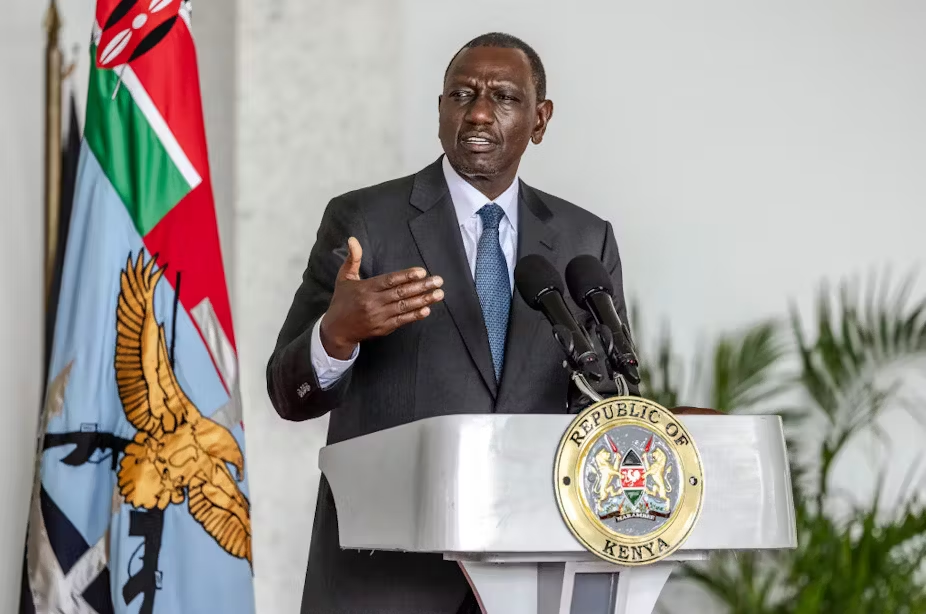Kenyan President William Ruto has issued one of the strongest calls yet for a restructuring of the United Nations Security Council (UNSC), demanding that Africa be granted two permanent seats with veto power. Speaking at the UN General Assembly (UNGA) in New York, Ruto described Africa’s exclusion from the Council as “grossly unjust” and argued that reform is essential to the UN’s credibility in the 21st century.

“Africa Cannot Wait on the Margins”
President Ruto reminded world leaders that Africa has been pushing for a permanent voice on the Security Council for over two decades. Despite repeated appeals, he said the issue has been “ignored, deferred, or endlessly debated” while Africa’s 54 nations remain excluded from decision-making.
“You cannot claim to be the United Nations while disregarding the voices of 54 nations,” Ruto declared. “Africa is no longer willing to wait on the margins of global governance while decisions about peace, security, and development are made without our perspectives and voice.”
The Demand: 2 Permanent Seats with Veto Power
The UN Security Council currently has five permanent members — the United States, China, Russia, the United Kingdom, and France — all with veto power. The other ten members are elected on a rotating basis and hold no veto rights.
Ruto insisted that this outdated structure reflects World War II power arrangements rather than today’s global realities. He argued that Africa, which bears the heaviest burden of instability, contributes significantly to UN peacekeeping missions, and is frequently on the Council’s agenda, deserves not one but two permanent seats with full rights, including the veto.
“This is not a favor to Africa,” Ruto stressed. “It is a necessity for the UN’s own survival. If the United Nations is to remain relevant, it must reflect today’s realities — not the arrangements of 1945.”
The Case for Reform
African leaders have long called for greater representation at the global decision-making table. The African Union (AU) has repeatedly backed the Ezulwini Consensus, which demands two permanent and five non-permanent seats for Africa at the UNSC.
Ruto’s fiery speech elevated this call to the world stage, emphasizing that Africa’s exclusion undermines not only the legitimacy of the Security Council but also the wider credibility of the UN itself.
He also highlighted Africa’s disproportionate role in peace and security crises:
- Prominence on the UNSC agenda due to conflicts and instability on the continent.
- Major contributions to UN peacekeeping forces, often supplying personnel and resources.
- Economic and security vulnerabilities, which leave African nations bearing the cost of global decisions they have no say in.
Breaking from Post-War Power Politics
Ruto warned that the current UNSC system prioritizes the interests of the World War II victors rather than reflecting today’s geopolitical balance.
“The world must understand that reforming the Security Council is not optional — it is essential,” he said. “Decisions about our destiny cannot continue to be made without us.”
His message drew applause from African delegations and resonated with broader calls for UN reform among developing nations, many of whom argue that the Global South must have stronger representation in global governance.
A Defining Moment for Africa’s Voice
As the UN faces questions over its relevance in addressing today’s crises — from wars in Ukraine and Gaza, to global climate and economic instability — Ruto’s intervention placed Africa’s demand for equal representation at the center of the reform debate.
Whether this call will be acted upon remains uncertain, given the entrenched veto powers of the existing permanent members. However, Ruto’s speech underscored a growing frustration that could shape future African diplomacy and South-South alliances.
“Africa will no longer accept exclusion,” Ruto concluded. “We demand a seat at the table — with full rights, with veto, with dignity.”










Comments are closed.